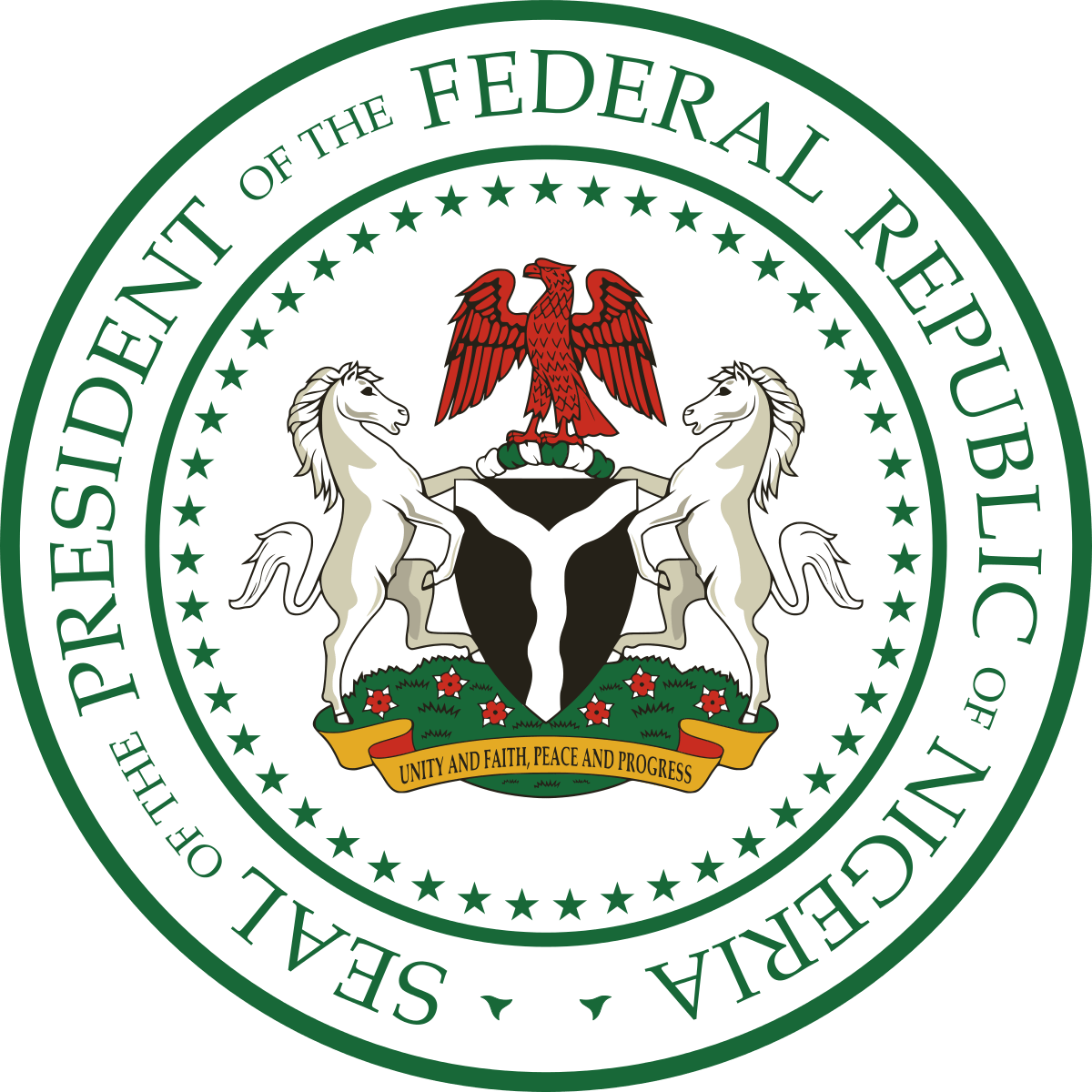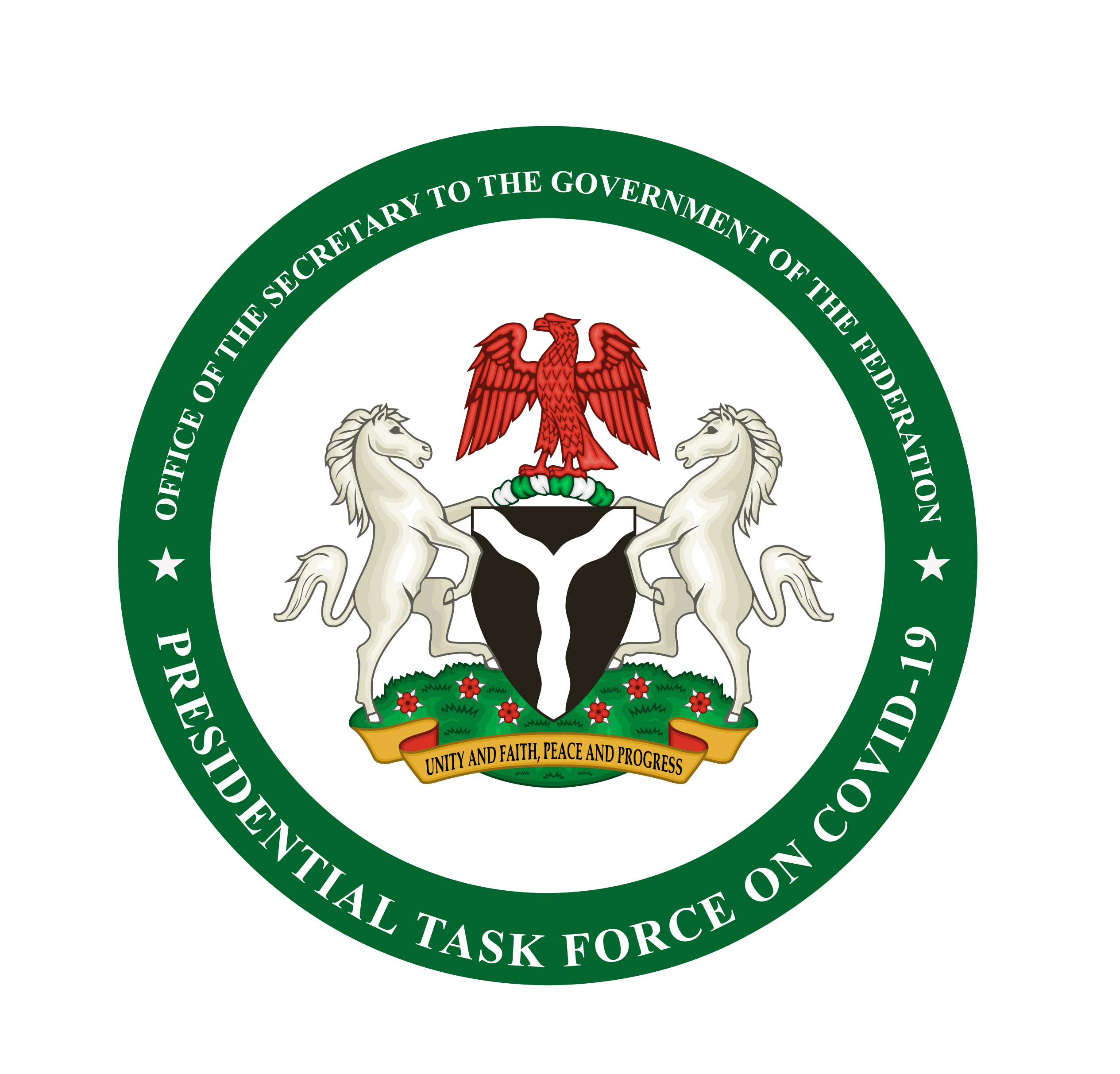30th June, 2020
UPDATED IMPLEMENTATION GUIDELINES FOR EXTENSION OF LOCKDOWN
(Download a pdf copy, here)
Section I. Guidance for Extension of Lockdown
The Presidential Task Force on COVID-19 (PTF-COVID-19) continues to rely on science, data and experiences from other jurisdictions to sustain and modify our strategy in the fight against COVID-19. To this end, the nation’s response successfully progressed to Phase Two of the eased lockdown on 1st June, 2020. The primary aim of Phase Two was to sustain the gains of the earlier Phase in terms of pandemic control, while allowing additional sectors of the economy to restart. This will help achieve the desired balance between saving lives and ensuring that the wellbeing and livelihood of citizens are protected.
An assessment of the current Phase has revealed a need for additional efforts to improve compliance with non-pharmaceutical interventions, strengthen the engagement of communities and local authorities in prevention campaigns and roll-out precision-based control measures in identified high-burden Local Government Areas of the country. To address this need, more time is required to consolidate the progress already achieved before complete easing of restrictions.
Further to the considered opinion above and effective from 0001h Tuesday, 30th June, 2020, the measures put in place for the current Phase Two of the eased lockdown shall be maintained while addressing some specific aspects through adjustment.
Specifically, therefore, the extension of Phase Two of the eased lockdown will involve:
- Maintaining the current nationwide curfew (10pm – 4am);
- Maintaining the restrictions on mass gatherings and sporting activities;
- Re-commencement of domestic aviation services;
- Allowing movement across state boundaries only outside curfew hours;
- Allowing students in graduating classes (Primary 6, JS3 & SS3) to resume in preparation for examinations;
- Federal and State Government offices to maintain current timing of 9am – 2pm as Officers on GL. 14 and above, and essential staff from GL.13 and below are to continue to report for duty; and
- Mandatory use of non-medical facemasks in public spaces with access to government and commercial premises to be denied for persons not wearing facemasks: ‘No mask, no entry. No mask, no service.’
The PTF has also specifically reviewed the issues around the continued restrictions in the education and transportation sector as well as for activities that attract mass gatherings such as operations of markets, worship centres and entertainment. It has arrived at the conclusion that these restrictions should be continued in these sectors. It is believed that these steps will help consolidate the gains made thus far and position the country to effectively overcome the pandemic going forward.
Section II. Protocols for Easing of Lockdown
GENERAL MOVEMENT
| Activity | Recommendations & Obligation of Operators |
| EXTENSION OF PHASE 2
30th June – 27th July 2020 |
|
| Curfew | § Maintain curfew at 10pm – 4am nationwide. |
| General Movement | ▪ May go out for work, to buy necessary foods and for exercise.
▪ Stay-at-home advice remains, particularly for the vulnerable, with movement between LGAs (except metropolitan areas) strongly discouraged unless for critical reasons such as healthcare and work, especially as it applies to high burden LGAs. ▪ Avoid unnecessary contact with people. ▪ Mandatory use of facemask/coverings in public. |
| Air Transport | ▪ The Aviation industry to resume domestic operations as soon as practicable, in line with existing international and local guidelines on COVID-19.
▪ Ensure provision of sanitisers and appropriate PPEs to all workers (such as facemasks, gloves etc.). ▪ Use of facemasks is mandatory for passengers. ▪ Carry out temperature checks at point of entry and departure. ▪ Ensure that cargo and logistics areas are decontaminated constantly prior to handling. ▪ Carry out effective tracking of travellers to ensure contact tracing if necessary. ▪ Only travellers and airport staff to be allowed into airport facilities. ▪ Passengers to ensure they arrive early for all flights taking into consideration the delays likely to arise from these additional measures (3 hours for domestic and 5 hours for international flights). |
| Inter-State Travel | ▪ Movement across state borders to be allowed, only outside curfew times, from 1st July, 2020.
▪ Railway transportation will be reviewed in due course. ▪ Allow travel by ensuring the following: – Strict compliance with the Federal Ministry of Transportation guidelines on COVID-19. – Provision of sanitisers and appropriate PPEs to all workers (such as facemasks, gloves etc.). – Occupancy up to half capacity for buses (50% of usual occupancy) and 2 passengers for Taxis. – Non-medical facemask for drivers, staff, and passengers always, ‘no mask, no entry.’ – Temperature checks at point of entry and departure, where necessary. – Handwashing facilities at bus parks, along with physical distancing. – Restricted access; posters and notices on conduct. – No hawking or begging. – Designated areas and procedures to isolate passengers with suspected COVID-19 infections. – Crowd Control – queueing discipline; social distance markers. – Conduct COVID-19 training for staff – Open windows for short distance trips ▪ State Governments, through the Commissioners for Transportation, shall undertake the inspection of facilities and confirm compliance as pre-condition to resumption of operations. |
| Intra-State Travel | ▪ Ensure provision of sanitisers and appropriate PPEs to all Park workers (such as facemasks, gloves etc.).
▪ Reduce occupancy to half capacity for buses (50% of usual occupancy) and 2 passengers for Taxis. ▪ Where possible, carry out temperature checks at point of entry and departure. ▪ Provide hand washing facilities at bus parks, along with physical distancing. ▪ Where possible, restrict movement in high burden LGAs to essential travel only. |
INDUSTRY & LABOUR
| ASPECT | RECOMMENDATION |
| Working Hours | ▪ Maintain normal working hours based on curfew arrangements apart from government offices.
▪ Offices to maintain working at 75% capacity, while maintaining 2m physical distancing. |
| Banks and other Financial Institutions | ▪ Banks to operate normal working hours.
▪ Ensure provision of sanitisers and appropriate PPEs to all workers. ▪ Limit number of customers to allow physical distancing. ▪ Limit workers to 75% or less to allow physical distancing. ▪ Banking operations should accommodate the elderly, people living with disabilities and customers who do not have access to internet services. ▪ Mandatory use of non-medical facemask. ▪ Encourage online banking and provide services online. ▪ Temperature checks. ▪ Ensure ATMs are managed and cleaned daily. |
| Government offices/ other corporate offices | ▪ To work from 9am – 2pm from Monday -Friday.
▪ Ensure provision of sanitisers and appropriate PPEs to all workers. ▪ Mandatory use of non-medical facemask. ▪ Encourage work at home policy for civil/public servants below GL14, while GL.14 and above, and essential staff are allowed to come to work. ▪ Temperature checks on arrival. |
| Manufacturing Industries | ▪ Ensure provision of sanitisers and appropriate PPEs to all workers.
▪ Limit number of workers to allow physical distancing. ▪ Mandatory use of non-medical facemask. ▪ Conduct temperature checks. |
| Personalised Services | ▪ Mechanics, artisans, hair salon operators, etc. who own their workshop /workstations and can clearly adhere to non-pharmaceutical interventions are permitted to operate.
▪ Ensure wearing of facemask when selling goods or providing services. ▪ Ensure provision of sanitisers and appropriate PPEs to all workers. ▪ Limit number of workers and customers to allow physical distancing. ▪ State and Local Government Authorities working with the Unions/Associations shall monitor and ensure compliance. |
| Supermarkets | ▪ Ensure provision of hand disinfectants to all customers.
▪ Limit number of customers and staff to allow physical distancing. ▪ Use non-medical facemask. ▪ Temperature checks. |
| Markets | ▪ Allocate day and time for opening of shops based on arrangements by local authorities.
▪ Observe all mandatory non-pharmaceutical interventions – Observe physical distancing. – Ensure supply of running water and soap/alcohol sanitizer. – Temperature checks at all entrances and by shop/stall owners. – Use of facemasks always. – Maintenance of environmental hygiene in the market. – Ensure presence of health officers at the abattoirs.
|
| Hotels, Restaurants and Eateries | ▪ Hotels may re-open but must observe all mandatory non-pharmaceutical interventions.
▪ Restaurants (excluding those serving hotel residents) are to remain closed for eat-ins with strict cleanliness guidelines. ▪ Eateries to strictly adhere to the take-away system. |
| Bars, Gyms, Cinemas, Event centres and Night Clubs | ▪ Closed until further evaluation. |
| Agriculture | ▪ Farmers to adhere to physical distancing on site.
▪ Ensure provision of cleaning stations at all points of entry. ▪ Observe all mandatory non-pharmaceutical interventions – Observe physical distancing – Ensure supply of running water and soap/alcohol sanitizer – Temperature checks – Use of facemasks always
|
COMMUNITY ACTIVITES
| ASPECT | RECOMMENDATION |
| Day-care and Primary Schools | ▪ All day-cares and schools to remain closed till further evaluation.
▪ Schools are encouraged to continue with e-learning and virtual teaching. ▪ Pupils may proceed to take the National Common Entrance Examination as soon as is feasible provided there is compliance with issued non-pharmaceutical guidelines.
|
| Secondary and Tertiary Institutions | ▪ All schools to remain closed till further evaluation.
▪ Arrangements to be made for exiting (graduating) students, in JS3 and SS3, to resume at both boarding and day schools as soon as possible for intensive revision exercises. All Education establishments are to conduct exhaustive reviews to ensure compliance with issued guidelines. ▪ Arrangements to be made for students taking part in the NABTEB and BECE examinations, WAEC examinations, and NECO and sub exams to resume school. ▪ All schools must comply with the six recommended steps and required measures issued by the Federal Ministry of Education before an institution is reopened in the timeline to be provided. ▪ Teachers may resume work as they are considered to be essential staff. ▪ Schools are encouraged to continue with e-learning and virtual teaching. |
| Churches and Mosques | ▪ Restricted opening subject to the protocols agreed by respective State Governments and FCT.
▪ Observe all mandatory non-pharmaceutical interventions – Observe physical distancing – Ensure supply of running water and soap/alcohol sanitizer – Temperature checks at all entrances – Use of facemasks always – Maintenance of environmental hygiene |
| Recreational Parks/
Communal Sports |
▪ Restriction on communal sports and use of recreational parks is maintained until further evaluation. |
| Visiting Hospitalised Patients | ▪ Limited to immediate family |
| Funerals and weddings | ▪ Limited to 20 people including close family members.
▪ All attendees must wash or sanitize their hands before and after attendance. ▪ Physical distancing must be adhered to for all attendees. |
Download a pdf copy, here


